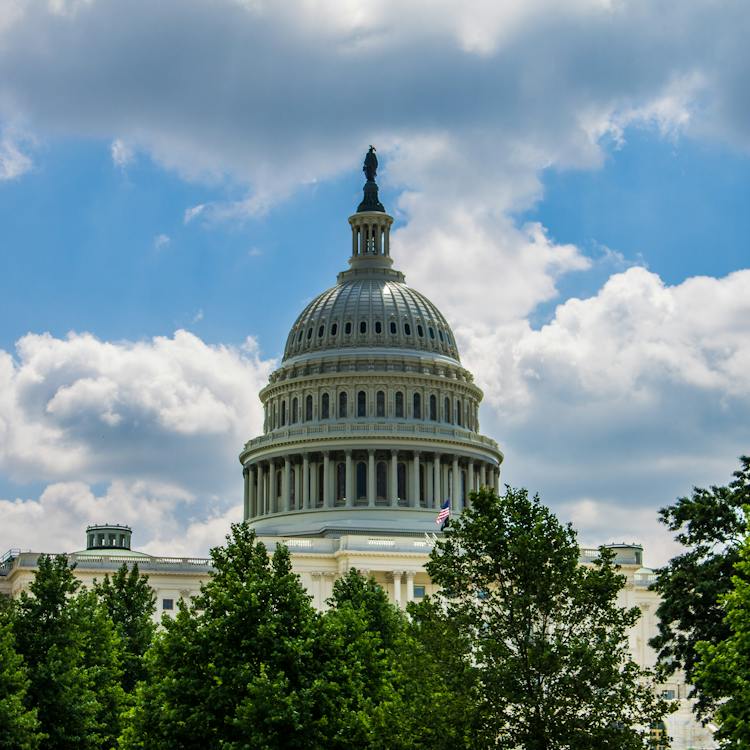AVAC FY2024 Appropriations Support Letter
The Honorable Robert Aderholt
Ranking Member
House Appropriations Subcommittee on Labor, Health and Human Services, Education and Related Agencies
Washington, DC 20515
The Honorable Rosa DeLauro
Ranking Member
House Appropriations Subcommittee on Labor, Health and Human Services , Education and Related Agencies
Washington, DC 20515
The Honorable Tammy Baldwin
Chair
Senate Appropriations Subcommittee on Labor, Health and Human
Services, Education, and Related Agencies
Washington, DC 20510
The Honorable Shelley Moore Capito
Ranking Member
Senate Appropriations Subcommittee on Labor, Health and Human
Services, Education, and Related Agencies
Washington, DC 20510
March 16, 2023
Dear Chairwoman Baldwin, Chairman Aderholt, and Ranking Members Capito and DeLauro,
As members of the Adult Vaccine Access Coalition (AVAC), we write to ask for increased funding of immunization-related activities at the Department of Health and Human Services as part of the fiscal year (FY) 2024 Labor, Health and Human Services (LHHS), and Education Appropriations bill.
As the public health emergency winds down, it is vital that our nation leverage the substantial investments and improvements that have been made to immunization infrastructure. The COVID-19 pandemic put a tremendous strain on our chronically underfunded public health infrastructure and exposed important weaknesses in the pre-pandemic system. It also reminded us of the importance of health promotion and disease prevention efforts. Immunization is core to public health, preventing billions of dollars in medical costs and lost productivity. Vaccines help mitigate disease, prevent severe illness, and reduce hospitalizations, morbidity, and mortality.
Over the course of the pandemic, we saw a precipitous drop in immunization rates across all ages, young and old. Before the pandemic, adult immunization rates were already below national targets, especially in underserved communities, where the risk of poor outcomes was highest. It is therefore critical that the LHHS appropriations bill includes sustainable funding for immunization efforts, including long-term investments in immunization infrastructure, including improvements to adult vaccination, immunization data systems, vaccine confidence campaigns, and support for immunizing providers.
Since 2020, Congress has made several rounds of substantial emergency investments to ensure that all eligible individuals had access to the COVID-19 vaccine. With the close of the PHE, it will be imperative to ensure funds to transition our Nation to a sustainable program to support not only COVID-19 vaccination but also supporting recovery of routine childhood, adolescent and adult vaccination that have been missed.
With this in mind, we ask the Committee to strongly support funding of the following immunization efforts:
$1.1 billion for the National Immunization Program. The immunization program at the Centers for Disease Control and Prevention (CDC)’s National Center for Immunization and Respiratory Diseases (NCIRD) provides foundational support for state and local health departments to carry out a variety of activities vital to the prevention, detection, and mitigation of vaccine- preventable conditions. These essential grants are utilized not only for the purchase of vaccines, but also support a number of other important activities, including: surveillance, safety and effectiveness studies, education and outreach, implementation of evidence-based community interventions to increase immunization coverage among underserved and high-risk populations, and vaccine-preventable disease outbreak response. The resources provided under the immunization program are vital to communities across the country, many of whom rely solely on these funds to support their immunization activities.
$241 million for Influenza Planning and Response at CDC’s NCIRD. CDC’s Influenza Planning and Response programs help to protect the United States from seasonal influenza and pandemic influenza. Each winter, influenza causes millions of illnesses and hundreds of thousands of hospitalizations. Providing $241 million for the program will ensure CDC has the resources necessary to address the continual threats posed by seasonal and pandemic influenza.
$150 million for CDC’s Division of Viral Hepatitis. The National Viral Hepatitis Strategic Plan has for the elimination of hepatitis A, B, and C as public health threats in the United States. HAV and HBV have a safe and highly effective vaccine that can prevent infection. In 2021 Advisory Committee Immunization Practices (ACIP) made a paradigm shift from a risk-based recommendation to a routine recommendation that all adults between 19 and 59 be vaccinated or hepatitis B. Currently, only 25% of adults are vaccinated for HBV. Chronic HBV requires life- long medical care, as there is no cure. With this new recommendation there is an opportunity to take us closer to the elimination of hepatitis B but will need improved funding to implement that important routine recommendation. Providing $150 million will be essential to expand adoption of recommendations for HBV and HCV testing, HBV vaccination, and linkage to care.
We look forward to working with your office as the FY24 appropriations process gets underway. For further information, please contact the AVAC managers at kpischke@adultvaccinesnow.org.
Sincerely,
Adult Vaccine Access Coalition
Alliance for Aging Research
American Academy of Family Physicians American College of Preventive Medicine American Heart Association
American Immunization Registry Association
American Pharmacists Association
American Public Health Association
Asian & Pacific Islander American Health Forum
Association for Professionals in Infection Control and Epidemiology Association of Asian Pacific Community Health Organizations (AAPCHO) Association of Immunization Managers
Association of Maternal & Child Health Programs Association of Occupational Health Nurses Association of State and Territorial Health Officials Biotechnology Innovation Organization
Dynavax
Families Fighting Flu
GSK
HealthyWomen
Hep B United
Hepatitis B Foundation
Hepatitis Education Project
Immunize.org
Immunization Coalition of Washington, DC
Infectious Diseases Society of America
Johnson & Johnson
March of Dimes
Medicago
Merck & Co Inc.
Moderna
National Association of City and County Health Officials
National Association of Nutrition and Aging Services Programs
National Black Nurses Association
National Consumers League
National Foundation for Infectious Diseases
National Hispanic Medical Association
National Minority Quality Forum
National Viral Hepatitis Roundtable
Novavax
Pfizer
Seqirus
STC Health
The AIDS Institute
The Gerontological Society of America Trust for America’s Health
Vaccinate Your Family
Valneva USA
VBI Vaccines Inc.
WomenHeart: The National Coalition for Women with Heart Disease
